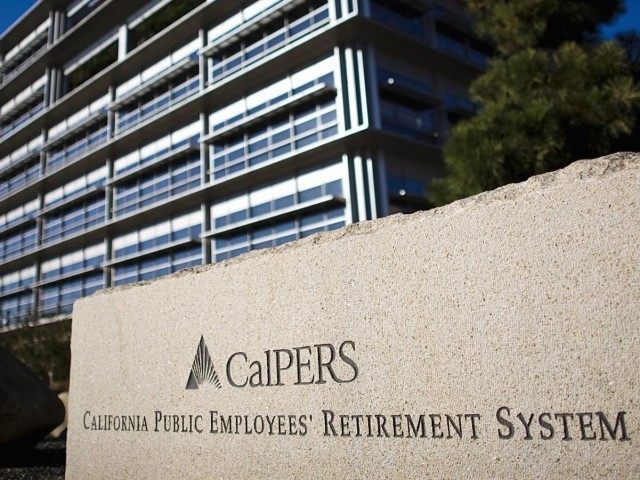For decades, California courts have prevented any cuts to luxurious public employee pensions, but the California Supreme Court is now reviewing arguments in a case that could allow slashing benefits.
A three-judge California Appellate Court ruling in August declared that public employee retirement plans were not “immutable,” because employees only required a “reasonable” pension. The ruling was a shock to unions that have been able to sustain public pension spikes, even if they put cities like San Bernardino in bankruptcy.
The appeal now before the California Supreme Court could have an impact that reverberates across the nation. Prior court rulings created what is referred to as the “California Rule,” which guaranteed government workers the pension that was in place on the day they were first hired.
As a result, this “first-in, always-in” precedent legally perpetuated a California government system that is wildly insolvent to the tune of $484.2 billion. That works out to a stunning debt of about $77,700 for every household in the state, according to the Stanford Institute for Economic Policy Research “U.S. Pension Tracker.”
Law professors were stunned when the Court of Appeals came in with a unanimous ruling opening up the concept of ending public pensions as we know them. Under the ruling, a state, municipal or local government entity could terminate its current pension plan and start a new one that had significantly less luxurious benefits.
The public employees would be able to keep the benefits they had earned, but they would not be ableto calculate their pension on the highest seniority grade they made or the greatest number of years of service. This also would stop the common practice of public employees maximizing overtime in their last 2 years of employment to spike benefits.
According to Emory University law professor Sasha Volokh, the “California Rule” was created by the California Supreme Court in 1955 in a city charter amendment decision titled Allen v. City of Long Beach (Cal. 1955). The amendment sought to improve the city’s solvency by raising the amount of employees’ retirement contributions from 2 percent to 10 percent, and it changed the pension from a fluctuating amount to a fixed amount. It also required extra contributions from employees who had returned from military service.
The court held that the amendment unconstitutionally impaired the contract rights of the employees who were adversely affected. It stated that the calculation of retirement income can only be changed if it is neutral or advantageous to the employee. It can never be reduced, except for new hires.
The life of expectancy of an individual who started working for the government in 1925 at the age of 20 and working until they retired was 54 years old. That means that many public employees were dead before they could retire with 30 years for maximum benefits. But a public employee that started working for government in 1986 can expect to retire this year with 30 years of service and live until he or she is 79 years old.
Following California’s treatment of government employee pensions as contracts protected by the state constitution, there are now twelve other states that eventually adopted the equivalent of the “California Rule.”
The case now before the Supreme Court is the result of a “pension reform” law pushed by Governor Jerry Brown and passed by the Democrat-controlled legislature in 2012, when the state was teetering on the verge of bankruptcy. The law cuts pension costs by raising the retirement age for new government employees, and bans “pension spiking” for existing workers.
The once-powerful state unions are that are appealing the decision contend that employees had long been promised that benefit and took jobs because of it.
But Brown cleverly exempted the treatment of California judges’ pensions under the law. The union’s lawyer, Gregg McLean Adam, ruefully commented, “They stuck it to pretty much everybody except the judges.”
The title of the case is: “MARIN ASSOCIATION OF PUBLIC EMPLOYEES et al., Plaintiffs and Appellants, v. MARIN COUNTY EMPLOYEES’ RETIREMENT ASSOCIATION et al.”

COMMENTS
Please let us know if you're having issues with commenting.